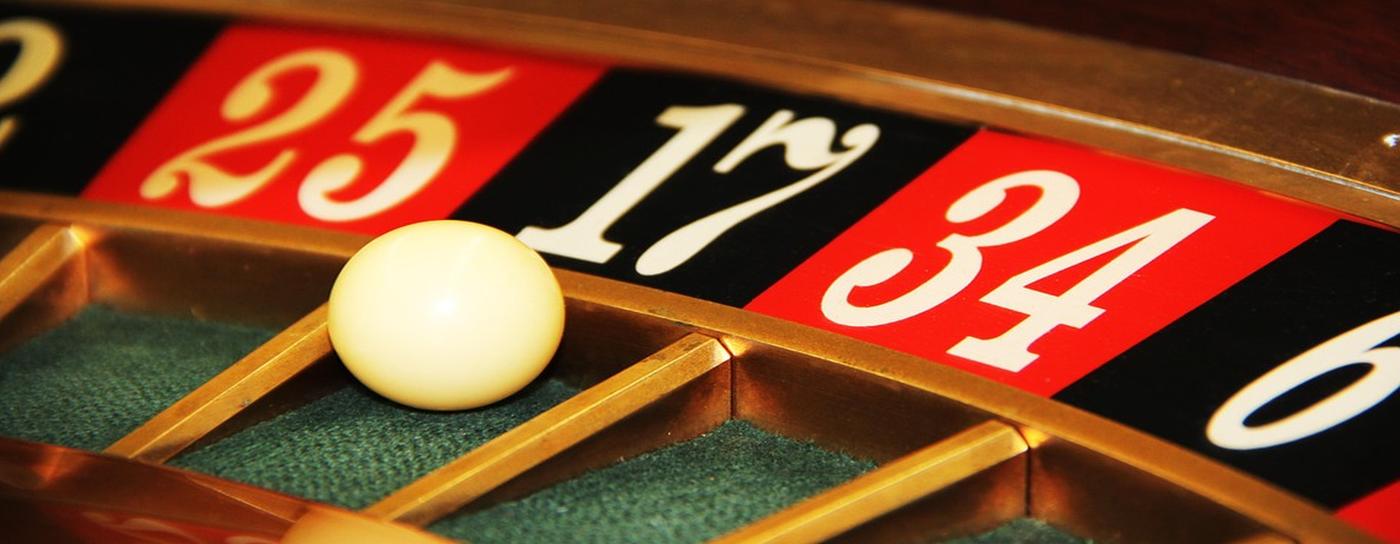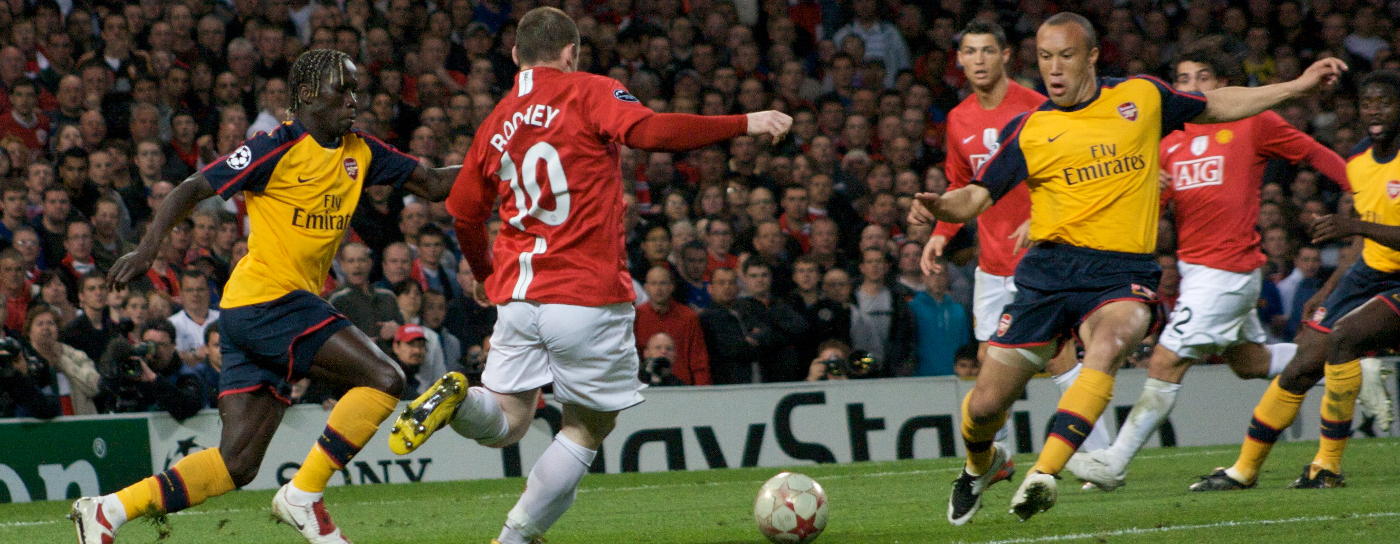What a mess the UK regulation of gambling is in.
I was invited to meet Tony Parente a central witness in this court case by Paul Fairhead (@boycottbetfred) around three years ago. Paul’s exact words were, “You need to meet this guy his story will change gambling regulation in the UK.” Paul would have been so excited to have seen this case in court if it had been about one thing, e.g. the exploitation of people with a gambling disorder, but it wasn’t.
As some of you know Paul sadly died nearly 12 months ago, so he never got to hear or see the trial. He would have been so disappointed to have witnessed the topics the case became primarily about.
Way before J4P’s existence Paul had been giving his time freely to help those in dispute with gambling companies. It is true to say that he came to deal with gambling disorder cases mainly in his final year of life. He found these cases challenging, because Paul was a truly lovely man and he found it difficult not to get too emotionally involved. It is also fair to say that Paul was a much nicer man than this author. He knew how to calm this author down when we faced, as volunteers, continuous injustice that was not being addressed by those paid to do so.
I met Tony Parente with Paul, sat and listened, not a strength of mine since joining the gambling world. Paul, as he often was, was right. If everything I was being told was true, surely this was the case that would blow apart, what Paul and I already knew, e.g. that some, if not many, gambling corporations were paying ‘lip service’ to the law and licensing, therefore surely somebody with the power to do so, would do something drastic to change things when everything became public.
How wrong we were, but can the situation be saved?
It’s an absolute disgrace that this case ever saw an English court and in this author’s honest opinion it was not totally due to Mr Parente, Mr Dhir or Flutter Entertainment PLC. Certainly all played a role, but the UK government, its Department in charge of gambling and the appointed regulator need to have a very long look at what they have done and haven’t done since 2005-6 concerning gambling regulation, especially the processes that are supposed to support the three main objectives of the Act (https://www.legislation.gov.uk/ukpga/2005/19/section/1);
- preventing gambling from being a source of crime or disorder, being associated with crime or disorder or being used to support crime
- ensuring that gambling is conducted in a fair and open way, and
- protecting children and other vulnerable persons from being harmed or exploited by gambling
The 2005 Gambling Act changed everything, because gambling went from something that was legal, but tolerated, to something that was legal and accepted as another entertainment industry that could be openly promoted. With this freedom came responsibilities for licensees, government and relevant regulators, not just the newly created Gambling Commission, primarily due to gambling’s propensity to cause addiction. It’s worth noting that the consumer has been left off this author’s list for now, this is deliberate, why?
The ‘game’ (and it’s not funny) since 2005 has clearly been to blame the consumer for everything that goes wrong pertaining to gambling disorder. This is extremely convenient for all concerned except the consumer. It is also wrong on every level.
Before many start shouting, this author agrees the consumer has a responsibility to gamble as safely as possible, but this does not mean all other parties have no responsibility. J4P has seen a lot of communication from gambling company staff and corporate defence lawyers that suggest all responsibility to ‘behave’ lies with the consumer. At present they are not wrong pertaining to the present unfair situation concerning gambling disorder case law, but regarding privacy law and certainly ethically this is wrong and reprehensible in that order.
What follows is an attempt to provide an insight into;
- how did we get where we are (in what could be labelled as an abusive relationship between some service providers and some vulnerable consumers)
- how organisations and people with power have, in effect, become complicit in this abusive relationship
- what is needed moving forward
People in the UK have rights, in theory those rights become stronger and potentially more explicit in law if a person is vulnerable. This isn’t just consumer law relating to a service provider and a consumer, more specifically in this case, it is about the rights of a vulnerable person (group). In the opinion of this author the extremely weak starting point that underpins everything else is that too many people with influence have not realised for various reasons, or worse, don’t believe that people with a gambling disorder are vulnerable and/or gambling companies have used exploitative practices.
If you believe that gambling disorder is a health condition as listed in the Diagnostic and Statistical Manual of Mental Disorders and most people are not qualified to challenge that it isn’t, you have begun your journey of understanding how badly gambling has been legislated for and regulated in the UK. By recognising this diagnosis and this health condition it’s not difficult to recognise that it is not the 100% responsibility of the gambling consumer when things go wrong. If you do not believe in the diagnosis, you need to consider the evidence base. This author realises he’s unlikely to change the views of those who believe that everything is the person’s fault or how their guardians or guardians educated and brought them up is the problem, but one can try.
Tony Parente committed crime, he was wrong to do that. Amazingly, to my knowledge, he has been treated better by those he stole off, than those who benefited from his crime and those who have the power to change a desperate situation into one where good can come of it.
Tony Parente informed the police of his crimes. He informed the gambling companies and the Gambling Commission also. He has worked extremely hard to try and help those he stole from to recoup some of their money. He has undertaken rehabilitation and gone on to help others with a gambling disorder. Post committing the crimes what else could he have done? Yet the system, in effect, has made him stand trial twice. It is nonsense and it is something all closely concerned, except Mr Justice Griffiths and Mr Dhir, should be embarrassed about.
How did we get to where we are?
Gambling disorder is an extremely complex issue and if anyone tries to tell you it isn’t or appears very confident in their suggestions of high impact solutions there’re probably best ignored. This author has read so much rubbish about solutions or even what I would call non-action proposed as a solution to last a lifetime.
Gambling is a legal and regulated activity in an increasing number of countries. This author agrees with it being legal, regulated and that most participants participate safely. However, wider legality means that more governments and others are financially benefitting as far as income is concerned. It can be strongly argued that this has contributed to regulation that is both unsafe and unfair for the consumer.
Regularly, the gambling companies and their many reputation managers, whom appear in various guises, tell us about the financial benefits to society of their industry and the entertainment. What they rarely, if ever talk about, certainly in direct evidenced ways is the negative implications for some people, families and society. Tax income and employment benefits are fairly easy to cost, whereas the negative impacts are much more difficult to cost precisely. Of course, it isn’t just about money, there is the enjoyment and conversely there is the heartache of suicides, other health implications and things like family breakup to consider.
Another big driver for where we are now is deeply entrenched, outdated views about mental health, gambling and addiction. This is convenient for some; there are even people who are more than willing to reinforce outdated views to support their narratives and better their personal or employer’s income. Two perfect examples of being outdated are the terms ‘responsible gambling’ and ‘problem gambling’. The gambling industry has ‘thrown money’ at promoting the customer being the problem, which these two terms have come to endorse. Many have been willing to take the money on offer and have been efficient reinforcers in blaming the customer. This narrative has been so successful that we even have campaigning ‘charities’ still using these terms in their literature and educational work. All who continue to partake in this should be embarrassed, especially the professionals and academics who should know far better.
Do not underestimate the power of blame as a reputation management tool. It has and still is used by many industries that cause harm. These messages permeate all aspects of a society, even services like the judiciary, thus often leaving those who have a gambling disorder with little or no recourse to justice. We must not forget that a winning punter in the UK has access to a free alternative dispute system (however flawed), whereas the person with a world recognised psychiatric diagnosis has no such service, e.g. they are left to fight alone by officialdom. It is simply incredible that no free gambling dispute service for those who are vulnerable exists in the UK. This fact alone surely confirms the power of blame as a reputation management tool and outdated attitudes towards gambling disorder.
Nobody will ever convince this author that these attitudes did not contribute to an innocent man having to fight in an English court to get justice. His money was stolen, there were beneficiaries, including one charity and another so called ‘charity’, intermediaries and gambling companies. The justice this innocent man got was a huge bill from London lawyers for daring to challenge a failed system of regulation and appalling processes at a gambling company, which cross-examination exposed better than this author ever could: https://www.bailii.org/ew/cases/EWHC/QB/2021/1510.html (see paragraphs/points 80-112).
It’s quite difficult to quote from these paragraphs without naming further individuals, so it’s up to readers if they choose to read this publicly available reference. As a summary, the following is taken from paragraphs/points 203-204: “However, Paddy Power knew from its own monitoring of Mr Parente that he was gambling like a problem gambler with an unhealthy and unsustainable gambling addiction on an escalating and desperate scale. Paddy Power knew that his losses were unsustainable on his known income and assets. Paddy Power knew that when they tried to get information from him to show source of wealth and source of funds, they failed. The information he provided did not suggest that he could afford to gamble on this scale, or that he had legitimate sources of wealth from which to fund it. I have made specific findings about Paddy Power’s knowledge in para 110 above. They do not depend on what ** ******* knew. Paddy knew quite enough without him.
They knew all this, but they continued to accept his stakes and, indeed, by providing gambling bonuses and lavish hospitality, to encourage him to gamble more. It stopped only when he stopped it himself by self-exclusion.”
NB: Paragraphs/points 80-112 are far more damning than this summary.
As we know, a very clever defence legal team turned the case into something much different than a discussion about social responsibility processes at a major UK licensed gambling operator.
Among many injustices the court process was able to outline, one that really stood out was that a regulator thinks it has the right to decide how to distribute someone else’s stolen funds (see paragraph/point 112). Following on from this, this author might be wrong, but it seems the recipients of this stolen money think it’s alright to keep it. Wow, just wow, the arrogance is off the scale.
At present we have;
- a man who stood trial for stealing and has completed his sentence
- a man who was stolen from who now has a huge legal bill, so large it would bankrupt the vast majority of individuals in the world’s population
- a regulator who thinks it is OK to decide how another’s money is distributed
- organisations who think it’s OK to keep stolen money
- a gambling company who has still to return the full amount of money they ‘won’.
- an introducer and their partner who did most of the work still keeping their substantial commission even though they knew the man generating this commission had a severe gambling disorder
- an extensive and very expensive court case that appears not to have touched on a vital piece of evidence; namely iovation code 99-3 for self exclusion and other iovation codes that cover ‘high risk’ customers. This author believes iovation was used by Betfair, Paddy Power and Ladbrokes (see paragraphs/points 14-16, the sums gambled are huge) at the time Mr Parente was gambling with them (I apologise if I’m wrong about iovation usage). If this product was used and used correctly, it would have been impossible for Paddy Power not to know about Mr Parente’s status as a high risk gambler, but as we know, despite claims to the contrary, this product has frequently been used incorrectly by gambling companies. Surely this is no defence though.
- according to publicly available information, 4 of 5 people employed by Paddy Power and cross-examined as witnesses for the defence are still working for Flutter Entainment PLC, some of whom have been promoted. This author cannot find any relevant publicly available information on the fifth person.
It’s difficult to imagine a system that could have produced worse outcomes.
What is needed moving forward?
An objective of all concerned must be to avoid the use of the courts if at all possible.
In this case, quite rightly, the criminal court had done its job regarding the theft by Mr Parente, but everyone else except Mr Justice Griffiths failed in stopping THIS case proceeding to court, when surely it was possible.
Mr Parente told the Gambling Commission (GC) about his crimes, but the processes the GC had in place were outdated, limited and not fit for purpose (still are). As an example why are there no processes that;
- stop the distribution of funds if they are known to be stolen
- dictate constructive communication with the person who was the victim to ensure amicable and fair outcomes
- enable a detailed transparent investigation of individual cases, undertaken by the GC or another independent reputable body, with all parties treated as equal partners
Surely, these three things alone would have ensured that this case was unlikely to see the inside of an English court. Let’s be honest crime linked to gambling is hardly a rarity, so why has nothing like these processes ever been put in place?
The most important message to be learned from this case is that the gambling industry needs an ombudsman service, which provides easy access to a well trained multidisciplinary team that deals with individual complaints about all aspects of the gambling industry. This must be one outcome of the on-going DCMS review. Amarjeet Singh Dhir v Flutter Entertainment PLC is a timely salutary warning: The outcomes are quite simply a series of injustices that could have been avoided with better systems.
The unfair outcomes in this case are not an isolated incident. J4P has lots of evidence of how present gambling company behaviour and failing regulatory processes often do not provide justice.
Vulnerable people are being exploited when gambling, plus that exploitation continues as a form of abuse when entering into a completely unfair dispute system (even if one could call it a ‘system’). The power imbalance in dispute processes is extreme. Some gambling companies have begun to improve, but most are quite simply awful in their approach to and attitude towards people who are often at their least able to defend themselves. J4P has no figures, but it is likely reasonable to assume that these approaches and attitudes have led to suicides since the 2005 Gambling Act. The regulators surely know this, but appear to do little, if anything. History will not judge them and the gambling industry well.
The UK urgently needs a gambling ombudsman that is completely independent of all industry influence and those who’ve been paid to be involved in the present shambles.








